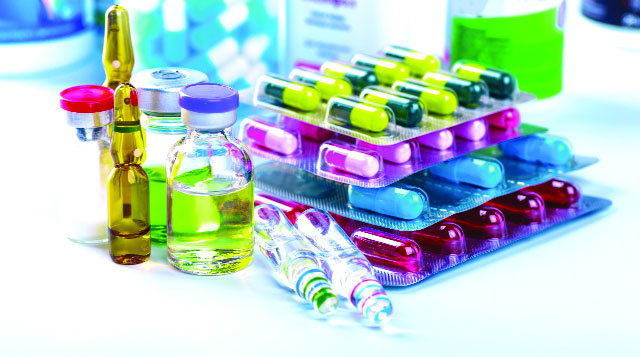Pharmacists grabbing money thru’ artificial crisis
Most life saving drugs out of market
Golam Mostafa Jibon: Artificial crisis of life saving medicines has created obstacle in health service as people can’t carry their treatment properly due to lack of medicines and those high prices.
According to the Health Economics Unit of the Health Ministry, about 64 percent of the total treatment cost of a person is spent against medicines.
But a section of unscrupulous medicine producers and pharmacists is creating artificial crisis of life saving medicines in the market and realizing additional prices on various excuses.
Despite the demand, some medicines are not available. Even if they meet again, they are about to expire. It is said that, the government has fixed the prices of 53 types of drugs, but many of the retailers are not complying with it. No one has any control over the price of imported drugs. Everyone is selling live saving drugs by increasing the price. After June-July of this year, the prices of more than half a hundred types of medicines have been increased in September.
Analyzing the increased price of medicines, it can be seen that recently the government has increased the price by a maximum of 134 percent. But in reality, it is being sold at a much higher price. There are also cases where the government has set prices higher than what the companies have proposed for some medicines. Due to these reasons, the patients have to pay several times more than the price at which medicines could be bought earlier. The situation has reached such a level that many people have to cut the expenses of other sectors while buying medicine.
Sarzamin has seen that some medicines like Basilax-9, Renvela are not available in the market now. Apart from this, Tiron, Moxifloxacin and other antibiotic drops used for various eye problems are now not available in the pharmacy.
Customers are also returning without getting the medicine. The truth of the words of the customers was also found in the statement of Al Mamun, the owner of Nahar Pharmacy in Gopibagh. He said that, the supply of disinfectant and antibiotic drops is less as per the demand when the eye disease spreads across the country. Companies can’t deliver drops. This problem is occurring since last 10 to 12 days. In the technical sub-committee meeting of the Department of Drug Administration on June 8 this year, the drug manufacturing companies proposed to increase the prices.
In line with this, the proposal to increase the price of 53 types of 20 generic drugs was approved in the drug pricing committee meeting on June 30. But all the companies are increasing the prices on various pretexts.
Traders said, there is a demand for this medicine for one month in a year. That’s not too much either. Besides, at the time of the year when this disease is more common, these drops are given free of cost from government hospitals and clinics. As a result, companies reduce production. But this time a crisis has arisen due to the sudden increase in the number of eye patients across the country. Companies are unable to supply enough drugs. By the way; there are more than 1500 types of more than 35,000 brands
of medicines in the country. Of them, only 117 drugs can be controlled by the government.
According to the Bangladesh Pharmaceutical Industry Association, more than 97 percent of the country’s total demand for drugs is being produced locally. In addition to this, 43 companies’ various types of drugs and raw materials of drugs are being exported to around 153 countries of the world, including the United Kingdom and the United States.
Rare Israeli airstrike in Beirut kills Hezbollah commander and more than a dozen others
International Desk: Israel launched a rare airstrike that killed a senior Hezbollah milita…








